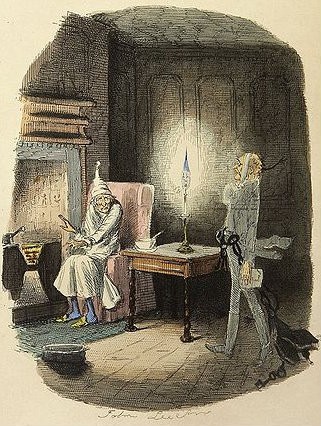Keeping Christmas

In Charles Dickens’s A Christmas Carol, Ebenezer Scrooge declares war on Christmas: “Out upon Merry Christmas! What’s Christmastime to you but a time for paying bills without money; a time for finding yourself a year older, but not an hour richer. . . . Every idiot who goes about with ‘Merry Christmas’ on his lips should be boiled with his own pudding and buried with a stake of holly through his heart.”
I first saw A Christmas Carol as a child, at an amateur church production. I still recall sitting bolt upright in the pew when I heard Jacob Marley’s ghost moaning and thumping up the stairs with clanging chains and money boxes dragging along behind him. I loved Bob Cratchit and Tiny Tim, of course, and the way the play ended, with Scrooge transformed and redeemed. (Best of all, Santa Claus appeared afterward and gave each child a small cardboard container with a string handle—full of chocolate candy.)
Charles Dickens was close to the mark. The gospel is about the power of love to change, redeem and save and to make a difference in the lives of men and women. A generation after Jesus’ death and resurrection, one of his followers wrote, “Beloved, let us love one another, because love is from God. . . . God is love and those who abide in love abide in God, and God abides in them.” What a remarkable notion!




